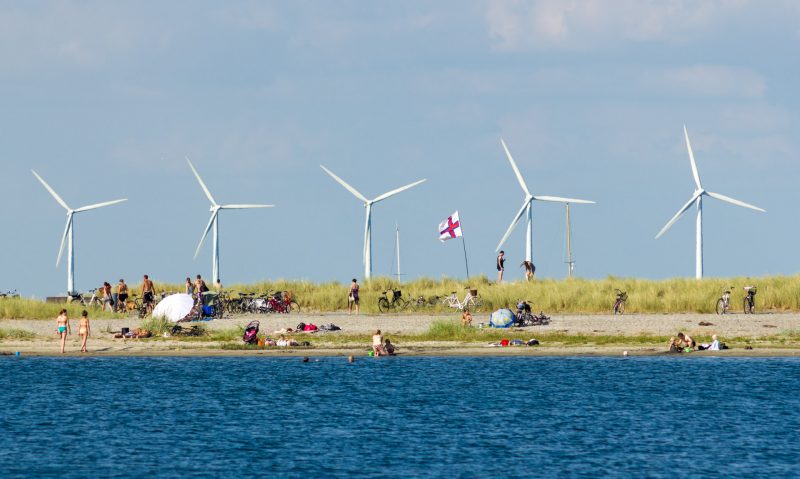Digging into the results of Wave 2 of the Global Green Attitude Survey
More details and deepdives on the conclusions of our second bunch of polling data

The Green Economy Coalition’s mission is to accelerate the transition to fair, inclusive, and sustainable economies. Understanding public attitudes toward green policies is critical to shaping effective advocacy and action. The latest GEC Tracking Engagement report (Wave 2, 2025) surveyed over 10,000 people across ten countries to explore priorities, trade-offs, and barriers in building a green economy. The findings reveal strong global support for environmental protection, but also growing cost sensitivity and persistent systemic obstacles. Here’s what you need to know about the trends shaping public engagement with green economy services.
Environmental fundamentals remain strong
Across all markets, access to clean water and air and reducing pollution remain the top priorities for creating a fair and sustainable society. Countries such as Australia, South Africa, and Turkey lead in prioritizing universal access to clean resources, while Peru and India show the strongest focus on pollution reduction. These findings underscore that, despite economic pressures, the public continues to value essential environmental protections.
Interestingly, Turkey and Peru emphasize laws that balance economic growth with environmental protection, signalling demand for integrated policy approaches. While support for green jobs and affordable clean energy softened slightly compared to 2024, the fundamentals, like clean air, water, and pollution control, remain robust.
Support for green policies is high, but cost sensitivity is rising
The global commitment to environmental action is clear. A large majority agree that protecting natural resources is more important than short-term economic gains, and support prioritizing clean energy investments even when significant government spending is required. However, willingness to bear personal costs is declining. Support for stricter business regulations has dropped, as has willingness to pay more for eco-friendly products and higher taxes to fund environmental initiatives.
This trend suggests that while people back systemic change, they are increasingly cautious about personal financial sacrifices. Advocacy must therefore focus on policy-driven solutions and cost-neutral incentives, such as subsidies and tax breaks, to maintain momentum.
The biggest obstacle to greener choices remains lack of government support, particularly in Nigeria, Turkey, and South Africa. Cost is the second major barrier, with many saying eco-friendly products are too expensive. Access issues persist, with limited local options reported in Peru and India.
These findings highlight that environmental engagement is not just about individual willingness, it’s about enabling conditions. Respondents called for a mix of government interventions, including more funding for environmental programs, better laws and regulations, public awareness campaigns, and financial incentives like subsidies and tax breaks. Without systemic support, personal commitment alone cannot drive the green transition.
Education emerged as a near-universal priority, with overwhelming agreement that schools should teach children about environmental protection. Support is strongest in Nigeria and Indonesia, reflecting a growing recognition that sustainability must be embedded in cultural and educational systems.
Generational differences are striking. Younger respondents are more likely to prioritize economic growth even if environmental action slows, while older respondents favour balanced policies and pollution reduction. This suggests advocacy strategies should tailor messaging, emphasizing job creation and economic security for youth, while reinforcing long-term stewardship for older demographics.
What works: effective actions for change
When asked which actions would most effectively protect the environment, respondents ranked government support for green businesses as the top choice, followed closely by stricter industrial pollution regulations and programs creating green jobs. This marks a shift toward systemic, policy-led solutions rather than individual behaviour change. Regional nuances matter: Indonesia and Nigeria favour green job programs, while Australia leads on stricter industrial regulation.
For advocates, this means pushing for government-backed incentives, industrial accountability, and employment pathways in renewable sectors, all of which align environmental goals with economic opportunity.
Wave 2 of GEC’s Tracking Engagement study paints a clear picture: global support for environmental protection remains strong, but cost concerns and systemic barriers are growing. People want governments and businesses to lead, through laws, incentives, and infrastructure, while education and green jobs are seen as critical for long-term change. For the Green Economy Coalition, these insights reinforce the need for inclusive, policy-driven strategies that make sustainable choices affordable and accessible. The green transition will succeed only if it delivers fairness, opportunity, and trust alongside environmental benefits.


